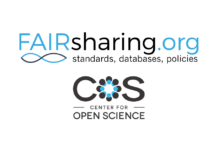A study published in the Community Mental Health Journal finds that two-thirds of psychopharmacology textbooks have authors and/or editors that receive payments from pharmaceutical companies. Unlike most medical journals, textbook publishing does not require disclosure of payments to authors and editors.
The study was conducted by Lisa Cosgrove and Farahdeba Herrawi of the University of Massachusetts Boston and Allen F Shaughnessy of Tufts University School of Medicine. Their work suggest that textbooks should divulge this information in the interest of transparency:
“Two-thirds of the textbooks had at least one editor or author who received personal payments from one or more pharmaceutical companies, for a total of 11,021,409 USD paid to 11 of 21 editors/authors over a seven-year period. Much of this money was paid to a single author, but 24% of the writers received over 75,000 USD each over this time period. There are several psychopharmacology textbooks authored by writers without apparent financial conflicts of interest. Just as with medical journals, medical textbooks should be transparent about payments made to their authors and editors.”
 The current research set out to investigate conflicts of interest in psychopharmacology textbook publishing. To accomplish this goal, the authors collected psychopharmacology publications where the intended audience was psychiatrists, and the publication was written as a textbook. Texts were excluded if they were not intended for prescribers. The list of textbooks was then shared with practicing psychiatrists, and they were asked for suggestions on inclusion and exclusion. The end result was nine textbooks. To investigate financial conflicts of interest, the researchers ran the names of the textbook authors and editors through two databases, ProPublica’s Dollars for Docs (for the years 2013-2018) and Open Payments (for 2019 and 2020).
The current research set out to investigate conflicts of interest in psychopharmacology textbook publishing. To accomplish this goal, the authors collected psychopharmacology publications where the intended audience was psychiatrists, and the publication was written as a textbook. Texts were excluded if they were not intended for prescribers. The list of textbooks was then shared with practicing psychiatrists, and they were asked for suggestions on inclusion and exclusion. The end result was nine textbooks. To investigate financial conflicts of interest, the researchers ran the names of the textbook authors and editors through two databases, ProPublica’s Dollars for Docs (for the years 2013-2018) and Open Payments (for 2019 and 2020).
Six of the nine textbooks reviewed had at least one author or editor that received financial payments from the pharmaceutical industry. Additionally, 1 textbook was written by a pharma employee. Of the 21 authors and editors for the included textbooks, just over half (11) received industry payments. In total, industry paid $11,021,409 to the authors and editors of the textbooks in question. While the majority of this money went to a single author, 5 of 21 received more than $75,000. 99.8% of these payments were not related to education but were made for services such as “promotional speaking.” While seven of the nine textbooks did have a disclosure statement for conflicts of interest, the placement of these statements made readers unlikely to see them.
There were several limitations to the current study. There was no content analysis of the textbooks. This means the research only shows financial conflicts of interest and potential bias, not actual bias. While 15 textbooks were included in the first list before suggestions for exclusion came from psychiatrists, only nine were included in the final study. The reasons for exclusion beyond the initial criteria are not listed. Financial payments not submitted to one of the two databases used by the authors could have been missed.
The authors conclude that medical students should be informed of the huge risk of bias present in many of their training materials and that textbook publishing should adopt a policy that includes a uniform and prominent conflict of interest statement. They write:
“In the same way that the International Committee of Medical Journal Editors (ICMJE) requires transparency, disclosure of FCOI should become a standard practice among the authors and editors of psychopharmacology textbooks. It is a positive sign that most (7/9) of the textbooks had a disclosure statement. However, the placements of these statements varied, and some were embedded in lengthy prefaces, making it unlikely that most readers would see them. Finally, further research should evaluate the possible relationship of FCOIs to the over-estimation of the benefits and under-reporting of harms of the drugs discussed in these textbooks.”
Prominent authors have commented that psychiatry textbooks are filled with errors and propaganda. Research has found that nursing textbooks regularly present the medicalization of mental health uncritically as if it was an objective fact. Other studies have found that psychology textbooks present misinformation about intelligence and ADHD.
Industry money has likely corrupted medical education as research has shown that industry-funded continuing medical education encourages doctors to prescribe more opiates without concern for the consequences. A similar study also found evidence that medical education was biased toward the promotion of drugs for binge eating disorders.
****
Cosgrove, L., Herrawi, F., & Shaughnessy, A. F. (2021). Conflicts of interest in psychopharmacology textbooks. Community Mental Health Journal, 58(4), 619–623. https://doi.org/10.1007/s10597-021-00906-6 (Link)















Stephen M. Stahl MD is one of the most prolific “contributors” and authors of these so-called Pharma textbooks with stick figure drawings and simplistic explanations on how these toxic destabilizing drugs “work”.
In 2018 alone he took in $1,750,000 according to Dollars for Docs! He is chairman of Neuroscience Education Institute an pumps out all of these Pharma textbooks. Outcomes for patients do not matter and failure does not matter when it comes to patients. Ideology based “medicine” is what psychiatry is all about.
Report comment